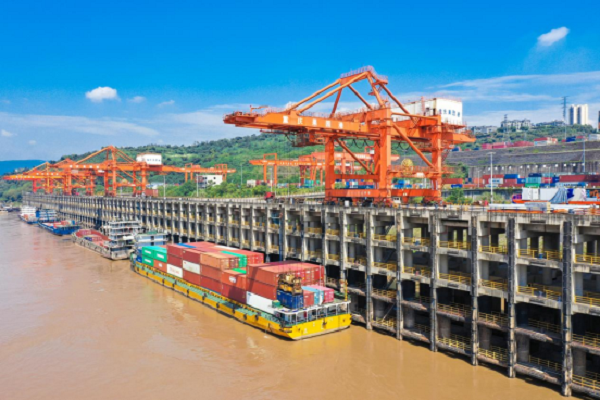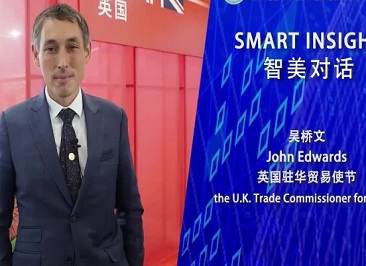Liangjiang New Area attracts investment from South Korea
Updated:2022-11-25
en.liangjiang.gov.cn

Work gets under way at Guoyuan port in the Liangjiang New Area. [Photo/liangjiang.gov.cn]
An online China-South Korea logistics cooperation seminar was held recently, in which more than 50 Chinese and South Korean enterprises, such as CJ Logistics, HTNS, and LOGISALL, were gathered to discuss the new collaboration space and fields.
An official from the Chongqing branch of the Korea Trade-Investment Promotion Agency said he was bullish about the prospects.
"Liangjiang New Area's full-fledged logistics network can provide diversified logistics solutions for South Korean enterprises poised to enter the Chinese and Southeast Asian markets," he said.
At the seminar, many South Korean firms said they wanted to do business with the new area. For example, Busan port hopes to establish a partnership with the Guoyuan port to deepen commerce and trade under the framework of the RCEP. The Regional Comprehensive Economic Partnership Agreement or RCEP is a massive new Asia-Pacific trading pact – which includes China – that came into effect at the start of the year and which is radically reducing tariffs imposed between its member states.
Empowered by the Yangtze River Golden Waterway, the New International Land-Sea Trade Corridor, and the China-Europe (Chengdu-Chongqing) freight trains, Guoyuan port has formed a railway-water transportation system that radiates out to southwestern and northwestern China, helping the western part of China to better integrate into the dual circulation development paradigm.
There are currently more than 30 South Korean-based enterprises based in Liangjiang. The new area has signed a collaboration contract with the Incheon Free Economic Zone and the two sides have pledged to join efforts in electronics information, high-end equipment, biomedicines, smart city construction and modern services.
Video

John Edwards, the UK trade commissioner for China, praised Chongqing over its rise as a burgeoning center in intelligent manufacturing.





